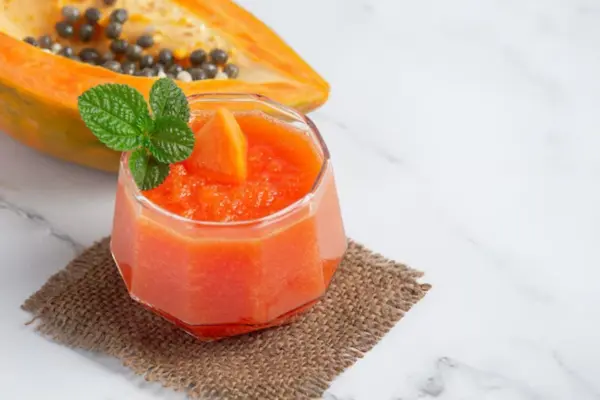Pregnancy is a beautiful journey, but it comes with special nutritional needs. It's important to be careful about what you eat and drink to ensure both your health and the health of your baby. Some foods and drinks can be harmful during pregnancy, and here is a list of 21 things you should avoid:

- Raw
or Undercooked Meat
Raw or undercooked meats, including sushi, steak, or hamburgers, can carry harmful bacteria like Salmonella and E. coli. These can lead to infections that might affect both you and your baby. - Deli
Meats and Processed Meats
Deli meats, hot dogs, and sausages can contain listeria, a bacteria that can cause a serious infection. Always make sure to heat these meats before eating. - Raw
Eggs
Foods containing raw eggs, such as homemade mayonnaise or cookie dough, may contain Salmonella, which can lead to food poisoning. It's safer to avoid them. - Unpasteurized
Dairy Products
Unpasteurized milk, cheese, and other dairy products may contain harmful bacteria like Listeria or E. coli. Stick to pasteurized dairy to stay safe. - Certain
Fish with High Mercury
Some fish, like shark, swordfish, and king mackerel, have high mercury levels, which can harm your baby’s developing brain. Opt for safer fish, like salmon and shrimp. - Unwashed
Fruits and Vegetables
Always wash fruits and vegetables thoroughly. Dirty produce can carry harmful bacteria, including Toxoplasma and Listeria, which could cause infections. - Raw
Seafood
Raw seafood, including oysters, clams, and sushi, can contain harmful bacteria and parasites. These could lead to foodborne illness, so it's best to avoid them during pregnancy. - Caffeine
Too much caffeine can increase the risk of miscarriage or low birth weight. It’s best to limit coffee, tea, and chocolate to a minimum. Try switching to decaf or herbal teas. - Alcohol
There is no safe amount of alcohol during pregnancy. Drinking alcohol can cause developmental delays and birth defects. It’s safest to avoid it completely. - Unpasteurized
Juices
Unpasteurized juices can carry harmful bacteria. Always choose pasteurized juices to avoid potential health risks. - High-Sugar
Foods
Excessive sugar can lead to excessive weight gain and increase the risk of gestational diabetes. Try to limit candies, soda, and sugary snacks. - High-Sodium
Foods
Consuming too much salt can cause high blood pressure and swelling. Avoid foods like chips, canned soups, and salty snacks. - Artificial
Sweeteners
Some artificial sweeteners, such as aspartame, should be avoided during pregnancy. Stick to natural sweeteners like honey or fruit instead. - Liver
Liver contains high levels of vitamin A, which can be harmful in large amounts during pregnancy. Avoid eating liver or liver-based products. - Unheated
Leftovers
Make sure leftovers are properly reheated to avoid foodborne illnesses. Never eat food that’s been sitting out for too long. - Spicy
Foods
Spicy foods can cause heartburn or indigestion during pregnancy. If you experience discomfort after eating spicy meals, it’s best to avoid them. - Unpasteurized
Soft Cheeses
Cheeses like brie, camembert, and some blue cheeses can contain harmful bacteria. Stick to hard cheeses or those that are pasteurized. - Raw
Sprouts
Raw sprouts, like alfalfa or bean sprouts, may contain harmful bacteria. Avoid them to reduce the risk of infection. - Herbal
Teas
Some herbal teas can have strong effects on pregnancy, including stimulating uterine contractions. Always consult your doctor before drinking herbal teas. - Fried
and Fatty Foods
Fried foods can be difficult to digest and may increase the risk of high cholesterol and gestational diabetes. Opt for grilled or baked options instead. - Too
Much Salt
Excess salt can cause water retention and high blood pressure. Avoid excessive amounts of salty snacks, processed foods, or takeout meals.

Conclusion
Taking care of your diet during pregnancy is key to your health and the development of your baby. Avoiding harmful foods and beverages is important, but also make sure you’re eating a balanced, nutrient-rich diet with plenty of fruits, vegetables, lean proteins, and whole grains. Always consult your healthcare provider for personalized advice.